Curated OER
What Color and Clothing Are You Wearing?
Young learners identify the type of clothing and color for eight multiple-choice questions. Just print this sheet out, and you're good to go!
Curated OER
Poetry To My Ears
Students investigate the 50 States Quarters Program. They use the state of Idaho as a basis for creating context for the lesson. The image on the coin becomes the subject. They differentiate between the reverse and obverse side of the...
Curated OER
You do! We do! We all Scream for Haiku!
Haikus offer a way to explore new ideas for teaching poetry, science, and math.
Curated OER
ESL: Beginning Vocabulary Matching
Beginning English Learners match 10 line-drawn pictures of basic nouns with their names, such as kite, airplane, goat, and igloo. Indefinite articles are included, so this exercise also provides reinforcement for the a/an rule.
Curated OER
ESL: Practice Using Present Progressive Tense
Small, cartoonish pictures of people expressing emotions and actions (blowing his nose, holding her head and frowning, dancing, smiling) provide the basis for writers to describe the feelings and experiences taking place. Help your ESL...
Curated OER
Haiku: The Power of Nature and Emotion
Introduce your students to the famous Japanese Haiku with these great ideas for the classroom.
Curated OER
Japanese Poetry: Tanka? You're Welcome!
Students explore tanka, a form of Japanese poetry. They read and analyze tankas to determine the structure and intent, and compose a traditional and a non-traditional tanka.
Curated OER
Acrostic Poems Lesson Plans
Acrostic poetry is a fun and simple form of poetry for your students to explore.
Florida Center for Reading Research
Florida Center for Reading Research: Syllable Patterns: Syllable Game [Pdf]
A lesson plan in which students play a game moving around the game board by counting syllables in words. Materials are included.
Florida Center for Reading Research
Florida Center for Reading Research: Syllable Patterns: Syllable Score [Pdf]
A lesson plan in which students count the number of syllables in words and then write them on a listed divided correctly. Materials are included.
Free Reading
Free Reading: Word Split Stomp, Segmenting Syllables Activity
A classroom activity that introduces and builds the accuracy of students' abilities of identifying syllables in a word. The instructor says a word, the student stomps once for each syllable in the word and then stomps one more time to...
Free Reading
Free Reading: Syllable Walk; A Syllable Identification Game
A fun, active game to learn all about syllables! Students line up on one side of the room and take one step for each syllable in the word that the instructor says.
Free Reading
Free Reading: Treasure Box Game, Segmenting Syllables
A classroom game designed to build accuracy skills in learners' abilities to identify syllables. The teacher prints picture cards (this site links to the site for pictures) of one-, two-, or three-syllable words. Students pull a picture...
Free Reading
Free Reading: Word Race Game, Oral Segmentation Accuracy
Students are divided into two teams. The teacher calls one person from each team up at a time to look at a picture. The first player to yell out how many sounds are in the picture gets a point for the team. This site includes a link to a...
Utah Education Network
Uen: Segmenting and Blending Words
In this lesson, students will learn how to segment words. Then students will play a segmentation game that utilizes Elkonin boxes and markers.
Free Reading
Free Reading: Slate Races: A Phoneme Segmenting Game
A classroom or small group game to build accuracy of students' abilities to blend phonemes. Students write the word that the teacher gives them on their own slate/dry erase board and then underneath the word, writes down each sound in...
Florida Center for Reading Research
Florida Center for Reading Research: Phoneme Segmenting: Say and Slide Phonemes
A lesson plan in which students work with a partner to count phonemes in picture cards. All materials are included.
Kidsource OnLine
Kid Source: Beginning Reading and Phonological Awareness
Key to learning how to read is the ability to identify the different sounds that make words and to associate these sounds with written words. There are 44 phonemes in the English language, including letter combinations such as /th/,...
Free Reading
Free Reading: Graph the Sounds: Oral Segmentation Activity
A small group activity. Each group receives a Graph the Sound page (link included on site). The teacher holds up a picture and the group must graph each sound they hear when they pronounce the word.
Free Reading
Free Reading: "Aliens of Paz" Picture Activity: Oral Segmenting Accuracy
An exciting activity that helps pre-readers identify sounds and break down words into segments. The students pretend to be "Aliens of Paz" who pronouce words very slowly. This activity also incorporates movement as the student touches...
Free Reading
Free Reading: Slate Races: A Phoneme Blending Game
A classroom or small group game to build accuracy of students' abilities to blend phonemes. Students write the sounds that the teacher gives them on their own slate/dry erase board and then blend the sounds together to form words.
Free Reading
Free Reading: Listen for My Sound. A Phoneme Segmenting Activity
A simple, yet effective activity to teach students to identify the same sounds in different words. The teacher says a word and the students give a thumbs up or thumbs down. This site also includes a Word Generator list link as a resource.
Wisconsin Response to Intervention Center
Wisconsin Rt I Center: Segmenting [Pdf]
Classroom teachers will learn how to use segmenting phonemes as an instructional strategy. Teachers will learn direct instructional techniques for segmenting phonemes; games and activities are also provided to reinforcement student...
Other
Hubbard's Cupboard: I Can Read! Environmental Print
This website provides "Environmental Print Cards," which can be printed out and used in a variety of learning activities through which young readers match images, sound out words, count syllables, and categorize products.





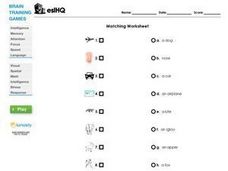

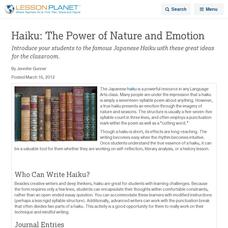


![Florida Center for Reading Research: Syllable Patterns: Syllable Game [Pdf] Lesson Plan Florida Center for Reading Research: Syllable Patterns: Syllable Game [Pdf] Lesson Plan](https://content.lessonplanet.com/knovation/original/509148-8ca3bfb1cf3c91645befd517e79fc0b5.jpg?1661800033)
![Florida Center for Reading Research: Syllable Patterns: Syllable Score [Pdf] Lesson Plan Florida Center for Reading Research: Syllable Patterns: Syllable Score [Pdf] Lesson Plan](https://content.lessonplanet.com/knovation/original/509147-35712458d13fb3af77d434efcff7a290.jpg?1661800034)
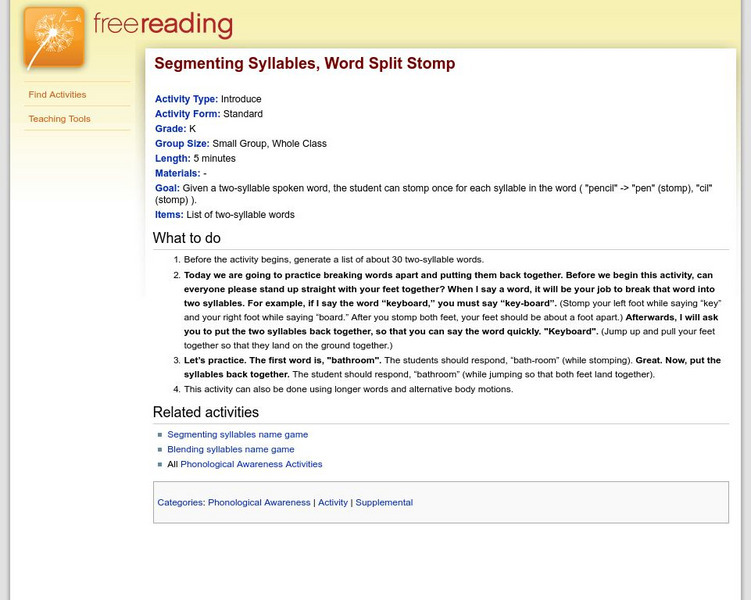
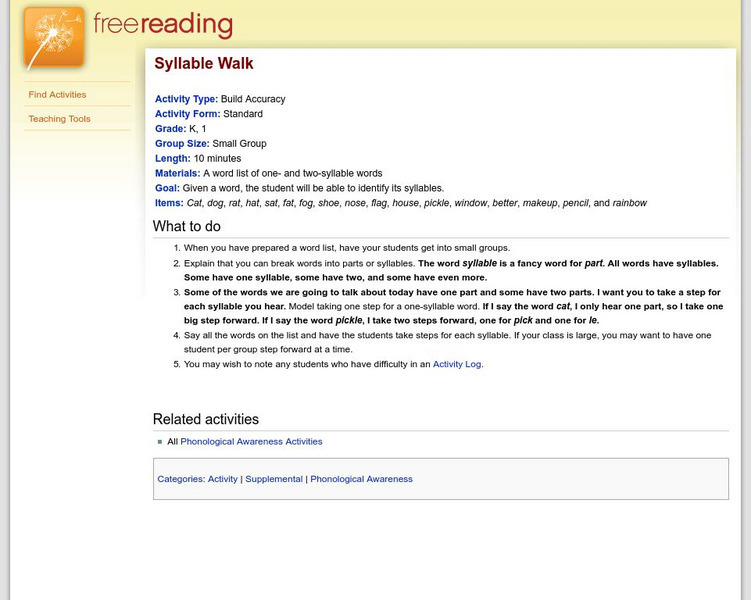

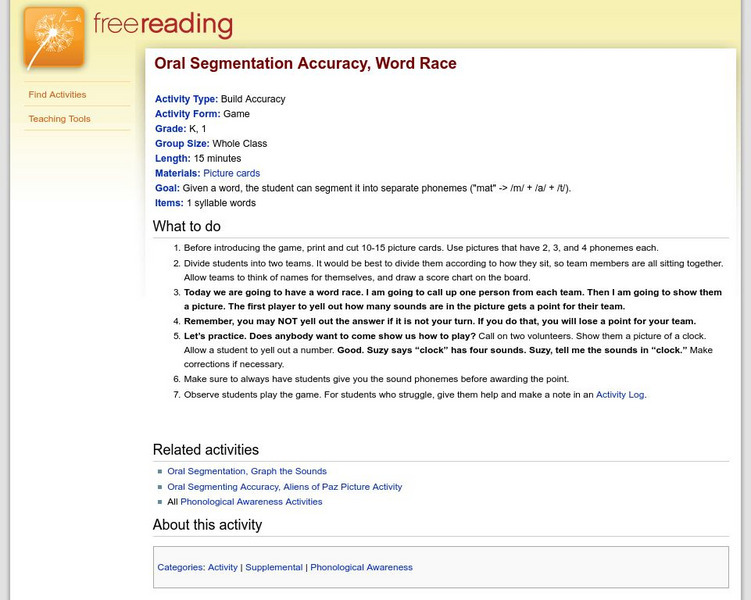
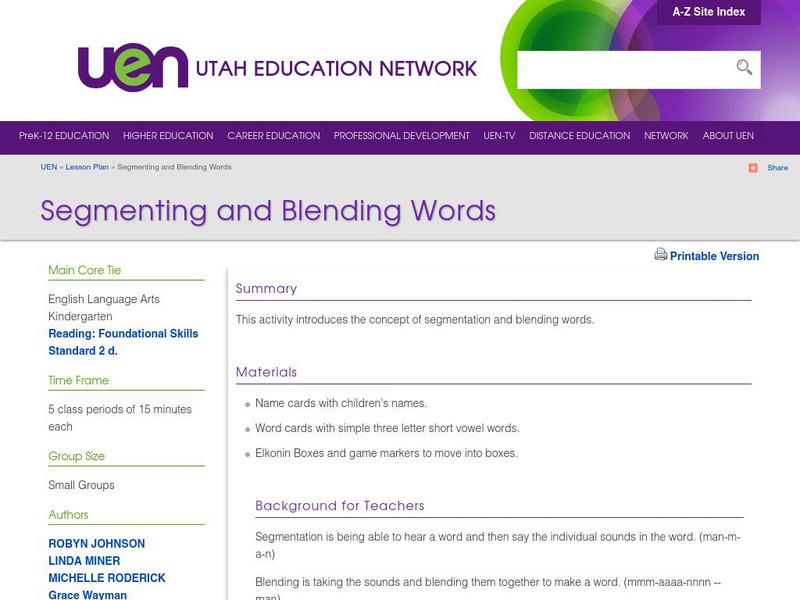


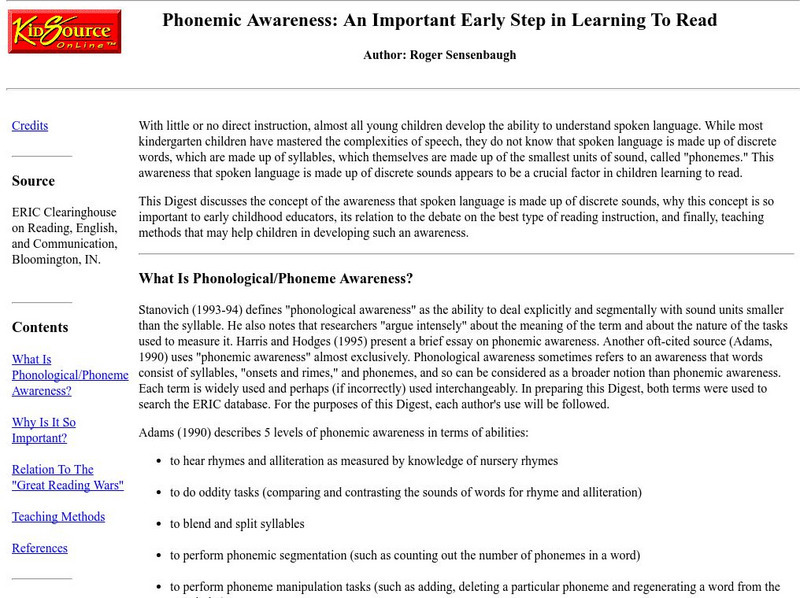
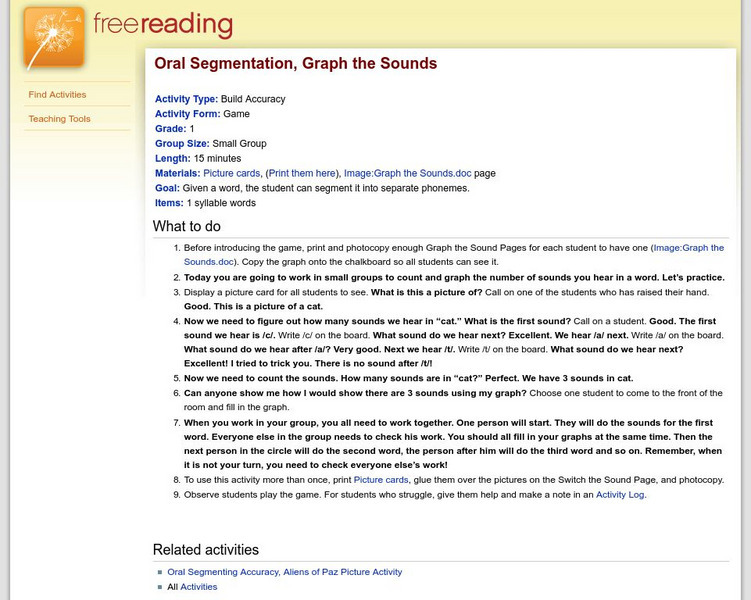
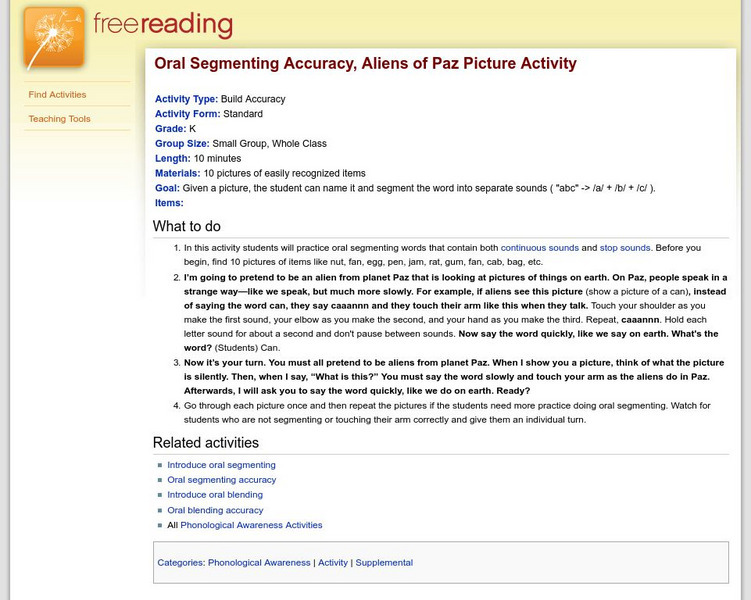


![Wisconsin Rt I Center: Segmenting [Pdf] Professional Doc Wisconsin Rt I Center: Segmenting [Pdf] Professional Doc](https://d15y2dacu3jp90.cloudfront.net/images/attachment_defaults/resource/large/FPO-knovation.png)
